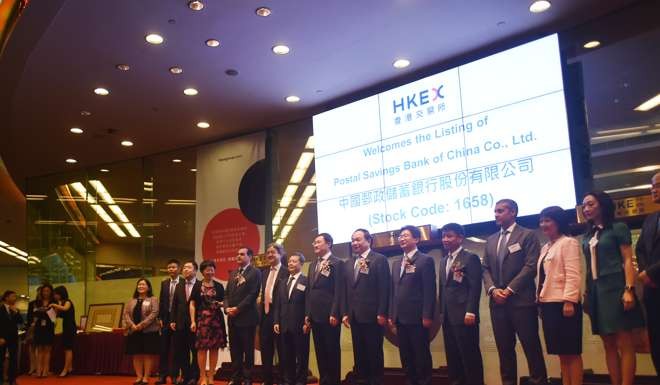
Nasdaq president: we’re not competing with Hong Kong for Chinese listings
Adena Friedman denies rivalry even as more Chinese companies are delisting from US indices and moving back home

The president of Nasdaq has insisted the bourse is not competing for the same companies as Hong Kong, despite a growing number of Chinese companies opting to stay on home turf rather than head for the United States to list.
The second-largest exchange in the world, New York-based Nasdaq is known internationally as the place to be for technology companies.
Hong Kong Stock Exchange is the most popular market for mainland Chinese stocks, though it loses out to other exchanges when it comes to Chinese technology companies, and has proposed launching a third board, possibly as a way of attracting more technology listings.
But chief operating officer and president Adena Friedman, in Hong Kong on Thursday to meet with clients like Hong Kong Exchanges and Clearing that use Nasdaq’s technology, claimed the index was not in competition with Hong Kong.
Not only is there no rivalry, but the two companies are working together, with Nasdaq providing surveillance technology for the Shanghai-Hong Kong Stock Connect and the new Shenzhen connect scheme which is due to be operational by Christmas.
“They’re very important clients,” she told the South China Morning Post. “We always look at if there are more things we can do with them from a business perspective.”

“When they come to list here, that’s a decision they make for the needs that they have, and we don’t see ourselves competing with Hong Kong,” Friedman said.
“We don’t sit there and get worried about it or have any issues with it.”
Fewer firms have filed initial public offerings on US exchanges so far this year than in any year since 2009, during the midst of the financial crisis.
Meanwhile, Hong Kong has handled the most IPO listings in the year to date, making it the world’s largest IPO market for the second year running.
Nasdaq actively seeks companies in Asia to list with them, and offers tools like PR and investor relations intelligence to firms free of charge for two years to help them mature as public companies, Friedman said.
It is also the only major US index that allows foreign-owned companies to use their full market capitalisation to be eligible for inclusion on the Nasdaq 100.
Our view is there’s nothing like the US markets
“Our view is there’s nothing like the US markets,” she said. “We’re not trying to say that Asian markets aren’t the right place for people.”
She said she wasn’t concerned either about the trend of Chinese companies delisting from US indices and moving back home, noting there are occasionally periods when companies chased different markets.
“We give them a huge amount of visibility and I think we do it better than anyone.”
About 80 per cent of technology IPOs in the US this year have listed on Nasdaq, she said.
The exchange has launched 84 IPOs this year to date for the US and Nordic markets, making it the leader in the US and euro-zone markets for IPOs, with five of them from China-based companies. Five more Chinese companies are hoping to list on Nasdaq in the remainder of this year, while another 12 to 17 Chinese IPOs are expected to come to the US next year. The majority are expected to list on Nasdaq.

In the medium term, it wouldn’t hurt Nasdaq as the US index still had a pool of professionals, analysts and investors, but in the long-term Hong Kong could become very competitive and build off its natural advantage of being in the same time zone and having the same culture as China, he said.
“If we can leverage our culture and time zone as well as our history that Hong Kong is a very established and reliable international market, then I think the third board is going to be successful,” Lam said.
Capital Link Investment Holdings chairman and chief executive Brett McGonegal, who managed the institutional IPO business for Charles Schwab in the late 1990s, said the decision of Chinese technology companies to list with Nasdaq was mostly to do with the legitimacy that comes from listing there.
“I don’t think they control their destiny with Chinese companies at all,” he told the Post. “I don’t think it has anything to do with the success of marketing or the success of Nasdaq as an entity. It’s more of an ego, more of a symbolic thing to a Chinese company to list there.”
McGonegal said Nasdaq’s Achille’s heel was “an overall Chinese pivot away from listing in the US”.
“I think there’s a very negative bias in the US to Chinese-listed companies and they trade at a deep discount to what they would trade at if they listed in Hong Kong.”